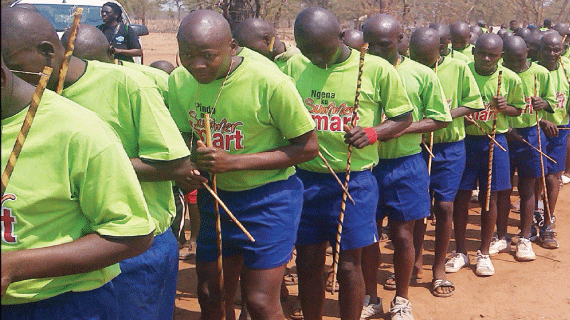
ACUTE food shortages are making it difficult for Tshangani communities in Masvingo Province to carry out their annual circumcision rites on time, a local chief revealed at the weekend. Tatenda Chitagu Own Correspondent The ceremony, usually performed in winter, was suspended and this year it had to be held at the end of August. Speaking at a mass circumcision graduation ceremony that saw a record 1 200 Tshangani men go under the knife in Chikokoko communal lands, Chief Chitanga said they feared men would starve during the one-and-half month camps that precede the ceremonies.
“Circumcision is part of the Tshangani culture. You cannot separate it from the Tshangani. But last year the exercise could not go ahead due to food shortages,” he said.
“There is need for a lot of food and a balanced diet when we are in camp.”
Chief Chitanga, also circumcised, appealed for food assistance from the government as well as non-governmental organisations (NGOs) in the fight against HIV and Aids.
The government and its NGO partners have been on a drive to encourage men to be circumcised following research that showed the procedure could reduce chances of HIV infection by 60%.
“We urge the government as well as other partners in the fight against HIV and AIDS to help us continue doing the practice by assisting in terms of food,” the chief said.
Masvingo provincial administrator Felix Chikovo told the circumcised men not to become promiscuous under the mistaken belief that they had become immune to HIV.
“Being circumcised does not mean that you should sleep around just because you have less chances of contracting the disease,” he said. “It is not a licence for promiscuity.”
- Chamisa under fire over US$120K donation
- Mavhunga puts DeMbare into Chibuku quarterfinals
- Pension funds bet on Cabora Bassa oilfields
- Councils defy govt fire tender directive
Keep Reading
According to the government more than 50 000 males were circumcised in the first six months of the year. The government set itself a target to have 1,3 million men circumcised by 2017.










